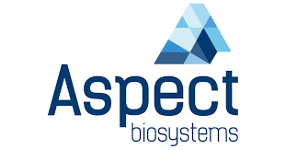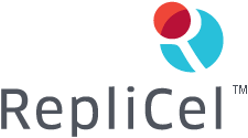A few months ago, I summarized seven local cell therapy companies in Canada that caught my attention. Since then, one full quarter of the financial calendar has passed. In the world of biotechnology start-ups, this could mean one more key milestone achieved, a new series of funding acquired, another business partnership announcement, and the list goes on. Change is an ever-existing constant in this industry. With that in mind, I am back with more companies that I suggest you put on your radar; altogether they showcase the potential our country has as an international leader in regenerative medicine. With the combined successes of these companies, Canada is becoming a household name for cell therapy research, development, commercialization and investment. These companies offer exciting opportunities for the teams that are recruited to make these discoveries and turn them into treatment realities, and for the patients who are the beneficiaries.
 Aspect Biosystems (Vancouver, BC. Founded in 2013.)
Aspect Biosystems (Vancouver, BC. Founded in 2013.)
A preclinical-stage company with a proprietary bioprinting technology applied to their therapeutic platforms for pancreatic and liver tissue. Bioprinting utilizes microfluidic 3D technology to combine cells and other biomaterials to create tissue-like structures. Aspect is developing bioprinted, functional, implantable, allogeneic cell therapies, where the cells are derived from a donor different than the patient, and from a single source. This new category of therapeutic cells includes stem cell islet clusters to treat type 1 and 2 diabetes and obesity, and hepatocytes for liver failure and liver-related genetic disorders. This is one of CCRM’s portfolio companies that recently made huge headlines for entering into a partnership with pharmaceutical giant Novo Nordisk. The deal was sealed at US$2.675 billion to develop bioprinted tissue therapeutics to target diabetes and obesity. The collaboration combines Aspect’s platform technology in bioprinting and tissue engineering with Novo Nordisk’s expertise in stem cell differentiation and cell manufacturing capabilities.
 Biocure Technology (Vancouver, BC. Founded in 2007.)
Biocure Technology (Vancouver, BC. Founded in 2007.)
A publicly traded biopharmaceutical company with a focus on biosimilar products and chimeric antigen receptor (CAR) T-cell therapy – these are T cells that have receptors for specific binding to the molecules expressed on cancer cells. BCP402 and BCP403 are the two CAR-T therapy programs for chronic lymphocytic leukemia (CLL) and solid tumours (ovarian and lung cancers), respectively. Both are targeting ROR1, which is a molecule specific to CLL and solid cancers. Biocure is also designing a “bi-specific CAR-T,” where there is binding of two instead of one target molecule, allowing for increased specificity and efficacy. Biocure is headquartered in South Korea and has an extensive overseas commercialization and clinical network established in Asia and Europe.
 Morphocell Technologies (Montreal, QC. Founded in 2018.)
Morphocell Technologies (Montreal, QC. Founded in 2018.)
A preclinical stage company that is developing allogeneic iPSC-derived engineered tissue for organ replacement therapy, termed Encapsulated Liver Tissue (ELT) technology for the treatment of liver failure and severe liver diseases. From this platform comes ReLiver®, implantable, matured, engineered liver tissues capable of maintaining metabolic function in-vitro, treating hepatic encephalopathy, and accelerating liver regeneration. A great bonus is that these tissues can be easily removed after the liver regenerates, leaving no trace of it in the body. Additionally, the team already has preclinical safety and efficacy data and completed some small and large animal model studies. They are well-equipped for clinical trials further down the road. This is another CCRM portfolio company, spun out of Centre Hospitalier Universitaire (CHU) Sainte-Justine’s Hepatology and Cell Therapy lab. They have three therapeutic products in their pipeline, all under the ReLiver® family: Transient Implant (described above); Bioartificial Device to treat all forms of liver failure; and Permanent Implant to treat metabolic liver diseases. But there is no limit to this technology because Morphocell plans to apply its therapeutic to other organ systems.
 RepliCel Life Sciences (Vancouver, BC. Founded in 2010.)
RepliCel Life Sciences (Vancouver, BC. Founded in 2010.)
A publicly traded clinical-stage company with three autologous cell therapy products in development to target androgenic alopecia (male pattern baldness affecting both men and women), aging and UV-damaged skin, and chronic Achilles tendinopathy. Autologous therapies use the patient’s own cells for treatment. These products are all in different stages of clinical testing and have been proven safe. RCH-01 uses dermal sheath cup cells isolated from hair follicles to treat pattern baldness and is the furthest along in a Phase III trial. It was co-developed with cosmetic leader Shiseido Company, which funded the Japanese clinical study for restoring hair growth. RCS-01 and RCT-01 are the other two products that completed Phase I testing and are being co-developed with YOFOTO (China) Health, a company engaged in health and consumer products. Both RCS-01 and RCT-01 utilize fibroblast cells from hair follicles for skin rejuvenation and tendon repair, respectively. Finally, DermaPrecise™ is RepliCel’s proprietary electronic dermal injector device that delivers therapeutic cells via intradermal and subcutaneous injections. It is currently in prototype development and testing. There is much anticipation for the commercial launch of DermaPrecise™ and the completion of the next stage of clinical testing with the cell therapies.
 Triumvira Immunologics (Hamilton, ON. Founded in 2015.)
Triumvira Immunologics (Hamilton, ON. Founded in 2015.)
A clinical-stage immunotherapy company with a mission to combat cancer using their proprietary T cell Coupler (TAC) technology via both autologous and allogeneic therapy. TAC receptor is a multidomain surface protein expressed in genetically engineered T cells, also known as TAC-T cells. The TAC receptor recognizes tumour molecules and activates T cells by interacting with the T-cell receptor (TCR) to initiate signaling cascades leading to the destruction of tumour cells. TAC can be customized to target different cancer markers including Claudin 18.2 (for gastric, pancreatic and lung cancer), GPC3 (for colorectal cancer), and GUCY2C (for liver cancer) in their program pipeline. Headquartered in Austin, Texas, Triumvira is in collaboration with Lonza to utilize the Cocoon™ Manufacturing System to produce TAC-T cells. Another partnership is with global pharmaceutical corporation Merck for a joint clinical trial evaluation of TAC01-HER2, Triumvira’s autologous cell therapy for HER2-positive tumours, and the lead product candidate currently in Phase I/II solid tumour trials. The clinical trial collaboration will investigate the use of TAC01-HER2 as a monotherapy and in combination therapy with Merck’s KEYTRUDA® (pembrolizumab), an immune checkpoint inhibitor. There are lots of clinical data to look forward to in the coming months from this group.
Honourable mentions
On the opposite end of the spectrum to the well-established clinical-stage businesses, there are early-stage companies on the rise deserving of honourable mentions. They remind us that even large corporations need to begin somewhere. These new companies have just gotten started in the last three years and are gathering traction in the biotechnology community. Epitopea, founded in 2021, based in Montreal, QC. They are identifying novel tumour-specific antigens (TSAs) in different cancers with plans to develop accompanying therapeutic offerings such as T-cell therapies, cancer vaccines and biologics that will target the TSAs. Immugenia, founded in 2022, based in Sherbooke, QC. The team is combating childhood cancers by engineering blood stem cells for selective CAR expression in T and NK cells. Modulari-T Biosciences, founded in 2020, based in Montreal, QC. They are developing novel modular antigen receptor complexes for cell therapies.
With the diversity in company development stages, business models, therapeutic disease indications, and locations across the country, the future is definitely bright for this sector in Canada.
Have I missed a Canadian cell therapy company? Let us know in the comments.






Comments